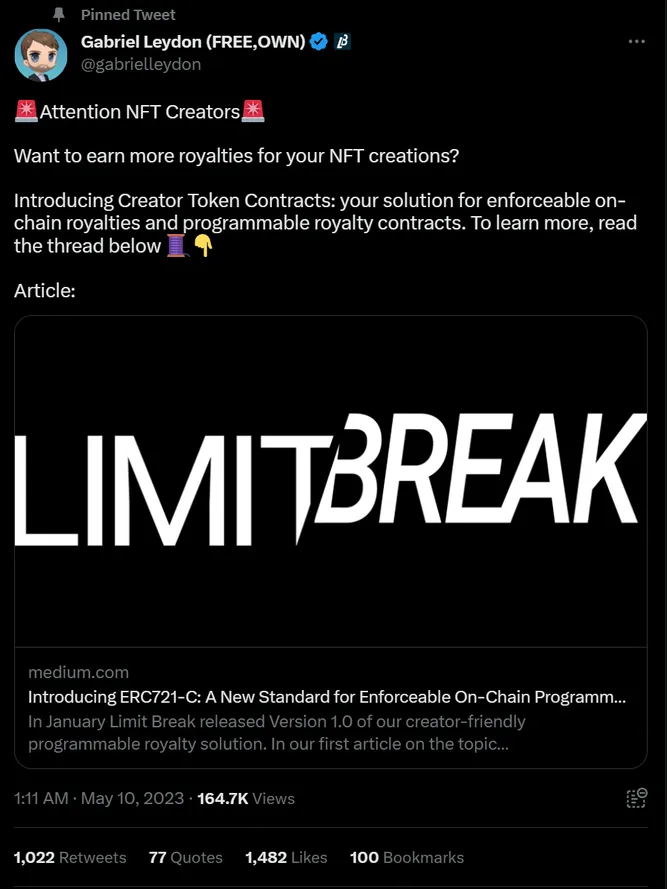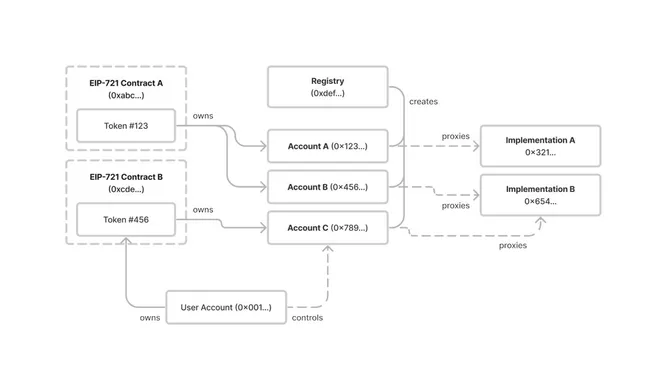This month we saw the introduction of two new token standards that will have serious implications on how teams can leverage NFTs in the future.
1) Limit Break’s compatible token contracts for programmable royalties
2) Adding depth to on-chain identities with ERC-6551
ERC-721-C
We first covered Limit Break’s novel ideas around programable token contracts in January’s Gaming Roundup, but it was only until relatively recently that we saw any meaningful updates.

Limit Break, the creators of Digidaigaku, and proponents of the Free-to-Own NFT structure believe that enforced royalties are needed in order for the sector to grow. To this effect, they released the code for ERC-721-C on GitHub last week, allowing creators to enforce royalties on-chain and prevent third-party exchanges from reducing them down to 0. Creators can choose between giving 1-100% of NFT royalties to minters, sharing royalties between minters and creators, or tokenizing the royalty rights into the NFT itself. These programmable contracts can currently be added to ERC-721, ERC-721-A, AdventureERC-721, and ERC-1155 on Ethereum mainnet, Polygon, Sepolia Testnet, and Mumbai Testnet. I will link the GitHub below for anyone who is interested.
ERC-6551
The ERC-6551 token standard, otherwise known as Token Bound Accounts, on the other hand, could potentially have a much more profound impact on how teams utilize NFTs in the future. Token Bound Accounts can be retroactively added and allow for a number of interesting use cases, essentially turning an NFT into an on-chain wallet.

Instead of your favorite PFP just being a static image that represents little more than your Twitter profile, it can now hold any number of different tokens that better define who you are (or who you want to be). Furthermore, this new standard will have significant implications for on-chain games.
Instead of your tokenized inventory items being linked to your wallet address, they can now sit directly in your in-game character’s backpack. Increasing player immersion and improving P2P transfers. Want to sell your airship along with all the fancy upgrades you’ve added over time? No need to sell items individually or transfer in bulk to a wallet address, now, you can sell that ship, with all the upgrades attached, directly to another in-game character or NPC, and they need not tinker with anything.
I expect that fully on-chain gaming and identity protocols will be the first to experiment with ERC-6551 tokens, but it should not take long before we start to see the ripple effects impact the more “normie” orientated products.
Links:
ERC-721-C announcement: https://medium.com/limit-break/introducing-erc721-c-a-new-standard-for-enforceable-on-chain-programmable-royalties-defaa127410
ERC-721-C GitHub: https://github.com/limitbreakinc/creator-token-contracts
ERC-6551 docs: https://eips.ethereum.org/EIPS/eip-6551